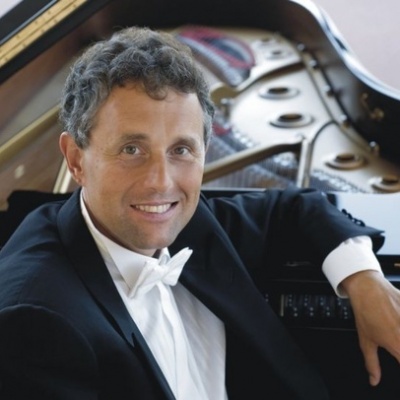
Vesselin Stanev
Vesselin Stanev was born in Varna (Bulgaria). At the age of ten he began his musical training at the school of music there, and in 1981 he enrolled at the Academy of Music in Sofia. Two years later he went to Moscow to study with Dmitri Bashkirov at the Tchaikovsky Conservatoire, where he was awarded his soloist's diploma in 1988. He then moved to Paris for further studies with Alexis Weissenberg, and between 1992 to 1995 he attended classes for advanced students at the Conservatoire National Supérieur de Musique. Since then he has been living in the city on the Seine, in Switzerland and occasionally in his native Varna. In London he has found a valuable mentor, Peter Feuchtwanger, who has been a major source of inspiration. He caused a sensation in 1991 with two concert appearances—as a soloist together with the Bamberg Symphony Orchestra at the international festival “Orpheum Soloists in Concert” in the Swiss town of Bad Ragaz, and with a piano recital at Vienna’s “Klangbogen” summer festival. Vesselin Stanev rapidly made a name for himself as a musician of outstanding talent, and awards at the Moscow Tchaikovsky Competition and at the Concours Marguerite Long – Jacques Thibaud bear witness to this. Vesselin Stanev’s career has taken him to leading European concert halls such as the Alte Oper Frankfurt, London’s Wigmore Hall, the Leipzig Gewandhaus, the Salle Gaveau in Paris and Accademia di Santa Cecilia in Rome, as well as to Scandinavia, Russia, Eastern and South-Eastern Europe and Japan. He has worked successfully with conductors like Paul Daniel, Armin Jordan, Alexander Lazarev, Hubert Soudant and David Zinman. His skills at the keyboard have been documented on Bulgarian radio and TV, and have been praised by the international critics. For the Bulgarian label Gega New, Vesselin Stanev has recorded six CDs with works by Schumann and Brahms, Liszt, Chopin and Rachmaninov. His first CD for Sony Classical features early works by Alexander Scriabin. For the RCA label, two projects with music of Franz Liszt followed: the "Etudes d'exécution transcendante" in 2010 and, in 2014, a programme titled "Music and Myth."
